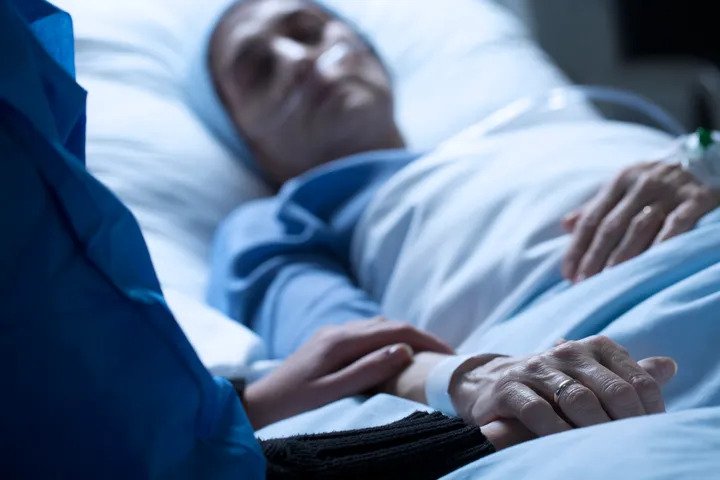Death, Loneliness and Farewells Due to the Coronavirus
Because of the quarantine, we need tools like mobile phones and video cameras connected to the Internet so that dying persons do not feel abandoned.
Source: Soledad Gallego Blanco
By: Huffpost

I am a doula of the end of life. Or doula of death. That’s what I like to call myself. Just as doulas of birth accompany mothers during pregnancy, childbirth, and the puerperium, there are doulas who accompany people at the end of life.
I found that out after accompanying my sister during her illness and death, together with my family, hers also. I thought that that was the ideal way to die—in the company of our loved ones—and I made the decision of avoiding people’s death in loneliness. I have been accompanying dying people in palliative care units for the last seven years, after a period of training.
During these seven years I have accompanied lonely people because they didn’t have a close relative, because they were homeless or, basically, because their immediate relatives could not accompany them due to the so-called care crisis: families whose jobs, some dependent persons, and a health system that transfers dying or elderly people tens of kilometers away from their usual homes, prevent the care of our loved ones as we have been doing habitually.
“We reach the end of our life without having prepared ourselves to die, thus causing ourselves a lot of fear and, therefore, anguish.”
Since a few weeks, to this we must add the COVID-19. This virus has turned our lives upside down. It has isolated us in such a way that we cannot accompany births or deaths; and neither welcomes nor farewells. But the difference between birth and death is that, in any case, newborns are accompanied at least by their mother, while dying people aren’t. And to die in loneliness is very hard. Very, very hard.
Our culture has even kept death out of our conversations. That is why we reach the end of our life without preparing ourselves to die, thus generally causing us a lot of fear and therefore anguish. Sharing our fears mitigates anguish, helps us to face death in a calm way, and surrender ourselves to it more peacefully. And when we can no longer or do not want to talk, the presence of another human being comforts and humanizes the process of dying.
A few days ago I read that a measure taken to make more bearable the isolation of people admitted to hospitals has been the television sets free of charge in public hospitals. Great initiative! But we must go further. We need tools allowing us to continue accompanying at a distance: cell phones, Internet connection, video cameras… Tools that help dying people to feel that they are not alone; that we are not leaving them alone; that they will not die alone.
“Dying in loneliness is very hard. Very, very hard.”
Tablets were donated in Italy so that people sick with coronavirus could say goodbye to their loved ones. Can’t we do something similar here? If hospitals and elder people residences and nursing homes had access to these technical means, the doulas of the end of life could continue to carry out our task of accompaniment, even during these days when we cannot do it face-to-face. If Floria, Clara, Amalia, Luis, Magdalena, Fátima, Mercedes, Modesto are still in the unit I am currently attending, they could continue to count on my conversation and my silence; with my presence. From home I could continue to accompany some of the hundreds of people who are at the end of their lives right now.
We have been talking for some years about putting life at the center so that life is worth living. This implies putting care at the center of life. And putting care at the center of life also implies to put it at the center of death, since death is part of life.

